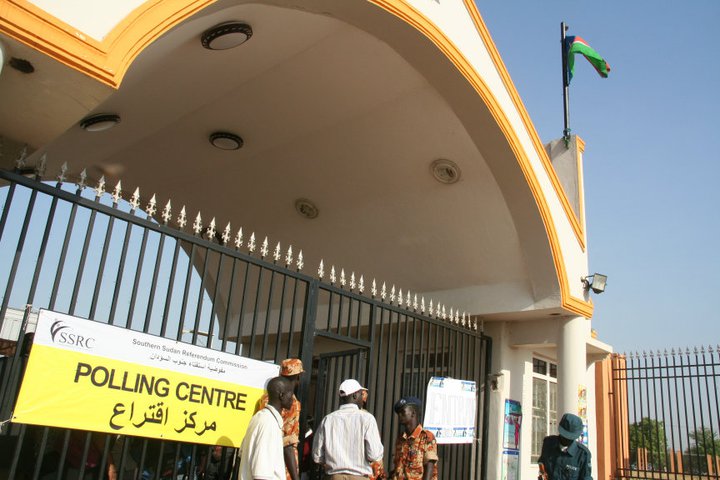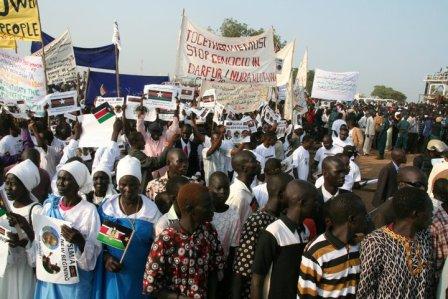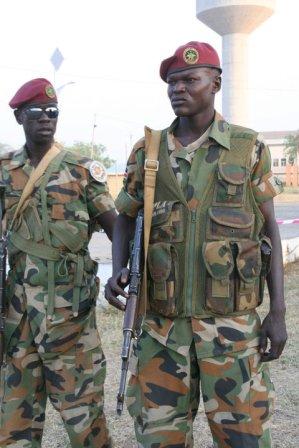Daniel Comboni
Misjonarze Kombonianie
Obszar instytucjonalny
Inne linki
Newsletter
Rome, Thursday, May 3, 2012
The political situation between South Sudan took a turn to the worse at the end of January when South Sudan decided to turn off the pumps in its oil fields accusing Sudan of stealing the crude and demanding an unreasonable fee to allow the export of oil through its infrastructure.
In February, negotiations on post-independence outstanding issues between both countries mediated by an African Union Panel were on standstill. In March, however, there was a significant breakthrough when South Sudan and Sudan reached an agreement on nationality-citizenship and security issues. Hardliners in Khartoum criticized the deal and – Juba charges – boycotted the presidential summit scheduled to April 3 in Juba for Salva Kiir Mayardit and Omar Al Bashir to ink both agreements and discuss other unfinished issues, including Abyei, borders and oil sharing.
At the end of March, Sudan Armed Forces (SAF) intensified bombardments across the common border with artillery and aircraft. South Sudan’s army, the SPLA, took an active position and repelled SAF beyond the key oil-rich Heglig area and withdrew to its positions. South Sudan calls Higlig with the Dinka name Panthou and claims the area that produces half of Sudan’s oil.
Sudan was not prepared for such a humiliation. Usually the SPLA would dig in and protect the territory without moving from its positions. SAF intensified its bombardments and cross border attacks and South Sudan seized Heglig-Panthou for the second time. Kiir told the National Assembly that this time the occupation was permanent. The international community condemned the seizure, the UN threatened with sanctions and some ten days later Kiir backtracked and ordered the SPLA to retreat orderly from Heglig-Pantou. Khartoum immediately announced that it beat South Sudan’s army out of the oil rich area, killing 1,500 SPLA soldiers.
Meanwhile, on April 8 the period of grace for Southerners living in the Sudan ended. Over 500,000 people have either to get proper documentation and register as foreigners or go home. On the same day, Sudan suspended direct flights between Khartoum and Juba.
After the occupation of Heglig-Panthou, Bashir ordered the suspension of talks with South Sudan accusing Juba of only understanding the war language and vowed to free the new country from the ‘insects’ of the SPLM, the ruling party. Sudan’s National Assembly declared South Sudan an enemy state.
In mid April, Islamists attacked and burned a protestant church in Khartoum used mostly by Southerners. In Nyala, the capital of South Darfur, the offices of Sudan Aid (Caritas) and Sudan Council of Churches were closed down, some property including vehicles confiscated and at least three Southerners working for Sudan Aid were arrested. In Gaderef State, a Catholic seminarian and a catechist were arrested, accused of supporting the SPLM-North.
At the end of April, Bashir declared the state of emergency along the border with South Sudan and the Governor of White Nile State gave 10 days to some 20,000 Southerners stranded in Kosti waiting for road or river transportation to South Sudan to leave accusing them as a threat to security.
International observers agree that the situation between South Sudan and Sudan escalated to dangerous levels and it could develop into all out war. The Government of South Sudan is mobilizing the country to support the army with money, food and soldiers. The Governor of Eastern Equatoria promised to enlist 12,000 youth to join the SPLA. Lakes and Warrap State are also mobilizing new recruits.
The Government of South Sudan approved an austerity budget to counter the shortage of revenue after it shut down the oil production. Hard currency is scarce and there are shortages of fuel, cement and medicines. Prices skyrocketed: inflation from March 2011 to March 2012 grew almost 51 percent.
Report to the General Administration from Province of South Sudan
Juba, 2nd May 2012






